Knowledge management and chatbots
At our roundtable, one HR leader revealed how they mainly use AI for knowledge management, an often-overlooked area. They mentioned how HR processes, over time, are saved across different documents and locations, are often rebuilt and process maps are updated. This can become confusing for new starters. With AI, however, you can feed that information into closed-box algorithms that learn from your inputs and engage with it to better understand, navigate, and improve these processes. Putting this into practice, connecting AI technology to a messaging system like Slack allows it to learn niche information specific to the organisation, then provide targeted knowledge back.
Similarly, AI-powered chatbots have made significant strides in the last four years. An article in Raconteur states that these chatbots leverage neuro-linguistic programming and machine learning to automate various HR functions, from answering jobseeker queries to scheduling interviews. They operate 24/7 on organisations’ websites, providing accessibility outside working hours. As noted by Hub Engage, AI-powered chatbots can be utilised in employee engagement and training to provide personalised learning experiences to employees, tailoring training materials based on individual needs and preferences. This approach not only enhances the learning process but also increases employee satisfaction and engagement.
AI’s role in recruitment
The HR leaders at our roundtable discussed the ways that AI might revolutionise talent attraction, selection and engagement. AI offers companies a powerful toolkit to enhance the recruitment, hiring, and onboarding processes, particularly with high volumes of applicants. According to a Harvard Business Review article, only 10-20 percent of candidates receive a thorough review. With an average of 250 candidates vying for a single open position, the capacity for hiring managers to evaluate every applicant can be limited. However, AI tools can comprehensively assess the entire candidate pipeline, ensuring that candidates aren’t overlooked due to time constraints or biases.
Given that a key benefit of AI is time-saving, its potential to screen high volumes of applicants and navigate time-consuming recruitment processes is highly significant to talent acquisition teams. In Raconteur, Robert Symons highlighted the time-saving benefits of AI for scheduling interviews. He noted, “One of my biggest bugbears was scheduling interviews across multiple calendars. But AI scheduling tools can promote available slots and even push messages out to the candidates, read the response and go ahead with self-scheduling.” By utilising AI, hiring managers can transform the hiring process, offering more efficient solutions at a time when remote work and digital communication are becoming increasingly prevalent.
Improved onboarding and retention
Efficient onboarding and training are essential for the seamless integration of new employees. AI can play a pivotal role in streamlining these processes by offering customised training plans tailored to each employee’s role and skillset, resulting in quicker and more effective learning. AI systems can monitor employee progress, pinpoint areas for improvement, recommend relevant courses, and foster continuous skill development and growth. This creates personalised learning pathways for employees, aligning with their skills, roles, and career aspirations — helping businesses keep employees happier and increasing the chance of retaining them for longer.
In fact, according to HR Cloud, a positive onboarding experience can improve retention by up to 82%. A major advantage is that AI-powered onboarding can happen 24/7: utilising AI as part of an onboarding experience can allow new hires to hit the ground running by accessing interactive training sooner and without the need for managerial involvement.
Josh Bersin highlights AI’s capacity to compile data for better hiring decisions and internal employee movement. It can guide choices on promotions and demotions and even help identify top talents within the company, which can be especially useful for larger organisations. Nevertheless, the process should remain a collaborative effort, balancing AI-driven insights with human intuition and managerial input to ensure fair assessments of an employee’s potential and suitability for advancement.
Data management and privacy concerns
HR leaders at the roundtable were asked to describe the first thing that came to mind with AI. One remarked, “I don’t know what I don’t know, so I don’t know what I’m doing incorrectly”. They further expressed a worry that, in streamlining recruiting, AI might be inadvertently excluding certain attributes or people. This concern highlights the importance of being fully aware of AI’s limitations before inputting data into a language model or program. Employers should work on establishing clear guidelines around the use of AI tools, standardise them for the company and distribute the guidelines to all. As a rule, sensitive information should never be fed into generative AI.
HR leaders also debated data management and privacy in the age of AI. Ensuring data quality and readiness for AI implementation was recognised as a critical success factor. However, while AI thrives on vast amounts of data, setting too many constraints on data collection for the sake of cleanliness might limit data availability for AI training. As cited in Consultport, AI can analyse a variety of data within the hiring process, including candidate sourcing data, candidate screening data, diversity data, and offer acceptance and rejection data. These data types are crucial for making informed decisions and promoting diversity and inclusion in hiring. The roundtable discussions reiterated the need for comprehensive data governance strategies to address these concerns.
These worries align with issues highlighted in a Forbes article, which suggests that AI adopters are more efficient in reducing candidate screening times but can be biased. HR leaders at the roundtable were keen to ensure that AI was applied in a manner that avoided such pitfalls and wanted to ensure that applications, particularly in areas like recruitment, do not lead to discrimination.
Leadership development with generative AI
HR leaders at the roundtable shared examples of AI implementation in HR. Notably, the application of AI in leadership development was explored in detail. Tools like Claude and Perplexity tailor leadership content to the objectives of organisations. They construct customised training programs and have the benefit of more up-to-date data compared to ChatGPT. When developed with input from employees, they are more efficient than outsourced generic leadership training programmes.
Additionally, personalised HR training and communication strategies can be enhanced with AI. Specifically, HR leaders are using AI to tailor training sessions to individual employees, such as creating scenarios that address toxic leadership or communication issues. By inputting detailed prompts into generative AI and allowing it to understand your objectives and organisation, it can produce tailored learning plans or content in minutes. One HR leader revealed that “the more thought you put into crafting your prompt, the more specific outcome you will get and less back and forth is needed.” To enhance this further, you can also set up a language model like ChatGPT to learn your tone of voice by importing your work and having it analyse your writing style.



